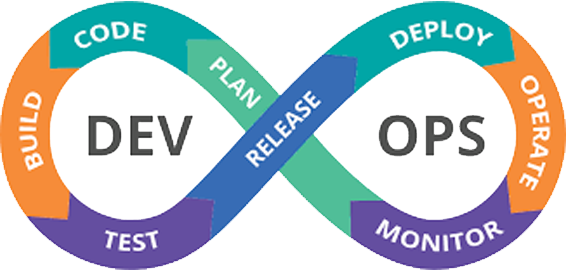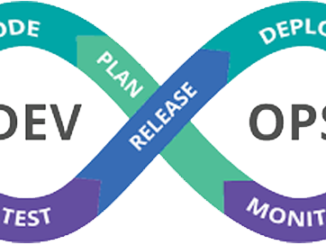There is such a method that aims to develop software in order to successfully implement all the necessary functions for a viable development process and direct operation in the future.
This is DevOps.
Using this mechanism, it is possible to coordinate several processes at once that are responsible for high-quality development. This is due to the ability to control not only the period of creation, but also the level of quality, safety and operation.
To better understand how the entire life cycle with DevOps goes, you should pay attention to all stages. All steps are briefly described below:
- At the very beginning, developers write the code for DevOps.
- Next, the specialists create binaries related to quality, which are then deployed.
- The next final step is to smoothly build the finished infrastructure into the immediate production environment.
You can see that this whole process puts a lot of emphasis on improving automation and testing. That is why automated testing tools are essential for DevOps to work.
For inexperienced users, this process may seem complicated. You will need to learn various modern tools in order to properly set up the automation and integration process. However, a good option would also be to contact a web app testing company, a DevOps-as-a-Service firm. Experienced professionals will provide you with the perfect result that will meet your requirements, from DuploCloud to other ones, these companies have proven experience in the DevOps field and have helped dozens of clients with great results.
Reasons to use DevOps
DevOps has a record of better control and successful integration, while other platforms have limitations. In addition, for developers, DevOps is a convenient tool that is very flexible.
Moreover, now DevOps has an upgraded version in which it has continuous development. This means code that can not only be deployed, but also tested and installed in the right place. This feature is a great helper for a more successful development, as all stakeholders will receive automated processes. Thus, no one will be distracted by errors and problems. Also, it saves the company time and money.
The impact of DevOps on QA
The standard functioning of the QA absolutely changes its appearance after DevOps is connected to the development process.
Let’s look at those steps that have changed their usual routine:
DevOps requires agreement from QA to ensure that automation is successful, environments are standardized, and their cleanup and testing tasks are not only automated but consistent.
Due to the fact that DevOps is quite demanding, each developer can contribute and customize the deployment. Moreover, it becomes possible to create new test cases or scenarios.
How to achieve business goals with DevOps:
- identification of test cases
- definition of specific terms
- lean testing
- identification of areas of a specific assembly
- viability test
- setting up specialized functions for code analysis
- well-developed strategy for testing new elements
- creation of test scripts using intermediate assemblies
- automate deployment
- compatibility with other platforms
- established criteria for a particular aspect
- reporting errors in the same way
Application control
It is also the responsibility of the AC to identify defects and report them immediately. For this process to work smoothly, it is necessary to start monitoring the environment, which will help identify flaws in the early stages.
It is worth paying attention to setting up the so-called specialized counters. This will ensure user satisfaction and your ratings.
To sum up
We’d be lying if we didn’t say that DevOps is our technological future. This process is a great option for developing the perfect software. DevOps testing services are useful in creating the best option for your company.
Professional engineers and developers will help you make your business dreams come true, which will propel you to first place among competitors.
Is a freelance tech writer based in the East Continent, is quite fascinated by modern-day gadgets, smartphones, and all the hype and buzz about modern technology on the Internet. Besides this a part-time photographer and love to travel and explore. Follow me on. Twitter, Facebook Or Simply Contact Here. Or Email: [email protected]








Leave a Reply